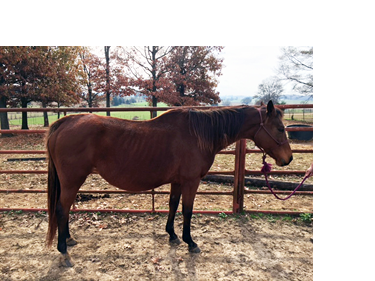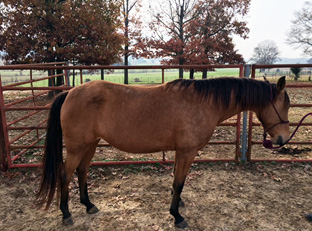Responsible Horse Ownership
The equine industry involves a very diverse group of people from various backgrounds and levels of equine experience. Nationally, about 72 percent of horses are owned primarily for recreational and showing purposes. In Mississippi, that’s about 112,000 horses, according to the American Horse Council. Education in basic horse management and handling is vital to provide optimal horse health.
Horse ownership is a 365-day-a-year commitment. You should expect to spend the majority of time caring for your horse—much more time than you spend riding and doing other fun activities. Basic responsibilities of horse ownership are providing food, water, and shelter. Additional considerations include these:
- Provide adequate space for comfort and socialization.
- Keep pens, paddocks, and stalls clean and free of manure, extreme dust/dirt build up, and hazardous objects.
- Avoid slippery surfaces, which create a safety concern for horses and handlers.
- Avoid blanketing horses that are turned out in rainy and wet environments with blankets not intended to become wet. Wet blankets can reduce the body temperature of horses and cause prolonged discomfort.
- Good horse owners pay meticulous attention to detail—feeding, grooming, cleaning stalls, exercising, and managing their animals daily.
Today, more than ever, people are watching horse events, from rodeos, horse shows, and barrel and chuck wagon races to horse racing. If you ride and train your horses for competition, be sure you use proper behavior modification practices. Ask yourself: “Are my methods training or abusing the horse?” Consider these welfare issues:
- Misuse of spurs, bits, and other training devices may be seen as inhumane or abusive.
- Maintain proper body condition. BCS 5 (moderate fat cover) or greater is recommended. See Extension Publication 2947 Body Condition Scoring System Benefits for Horses and Owners. Horses below BCS 5 may be in poor health due to limited fat cover and will be viewed as unthrifty.
- Timely deworming and vaccination schedules are necessary for optimum horse health.
Basic training is required to ensure a safe and enjoyable environment with horses. Horses should never be allowed to bite, kick, or endanger the safety of the handler. Proper training includes providing a stimulus, understanding the response from the horse, and reinforcing the behavior. At times, basic training may require the use of training aids, but these aids must be used as tools and not weapons. Basic equipment, such as halters, lead ropes, and saddles, do not generally cause harm to animals. Some people may think that tying a horse to a trailer or arena fence is cruel treatment, but it actually causes no harm.
Horses that are primarily housed on pasture may or may not have sheds or barn access for shelter, but they can do well as long as adequate forage is available. If pastures are not cared for (manure harrowed, weeds managed, clean water accessible, windbreaks/shade accessible), horses can become unthrifty very quickly. Additionally, make sure fences and gates are in good shape to reduce the chance of injury and escape.
Whether you ride and train horses or own them for enjoyment, remember that people notice how you treat and care for your horses. And this isn’t a bad thing! Understanding the responsibilities and liabilities of horse ownership will maximize your enjoyment while maintaining a positive image for the horse industry.
Sample Body Condition Scores
Note that older horses may have issues maintaining or increasing weight because of normal aging issues, including poor teeth and, therefore, digestibility.


.jpg)
Reference
Cavinder, C.A. (2016). Body condition scoring system benefits for horses and owners. Mississippi State Extension Service Publication 2947. http://extension.msstate.edu/publications/body-condition-scoring-system-benefits-for-horses-and-owners
The information given here is for educational purposes only. References to commercial products, trade names, or suppliers are made with the understanding that no endorsement is implied and that no discrimination against other products or suppliers is intended.
Publication 2950 (POD-04-22)
By Clay Cavinder, PhD, Professor, Animal and Dairy Science.
The Mississippi State University Extension Service is working to ensure all web content is accessible to all users. If you need assistance accessing any of our content, please email the webteam or call 662-325-2262.
Authors
Your Extension Experts
Related News
Pages
Related Publications
Pages
- « first
- ‹ previous
- 1
- 2
- 3
- 4



